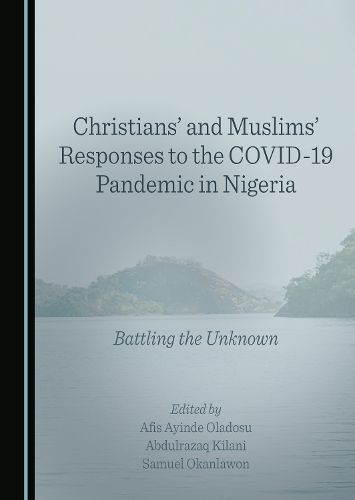Readings Newsletter
Become a Readings Member to make your shopping experience even easier.
Sign in or sign up for free!
You’re not far away from qualifying for FREE standard shipping within Australia
You’ve qualified for FREE standard shipping within Australia
The cart is loading…






This collection of essays attempts to speak to the past, as it does the future. It engages the dialectics in Christians and Muslims' responses to the COVID-19 pandemic from theological, philosophical, sociological and gender perspectives. The interdisciplinary approach became a necessity based on the realization that beyond the high fatalities that resulted from the pandemic, people's responses to it were as eclectic as were their existential realities. This volume is particularly unique because it yields space to Christianity and Islam and presents the trajectories in their practitioners' response to the pandemic. The authors historicize, theorize and theologize these responses and present exemplar templates of coping mechanisms for religious institutions and people faced with unconventional situations bordering on religious ideals. The book is a valuable resource for scholars, religious leaders, historians, health practitioners and faith-based organizations on strategies to adopt for future pandemics.
$9.00 standard shipping within Australia
FREE standard shipping within Australia for orders over $100.00
Express & International shipping calculated at checkout
This collection of essays attempts to speak to the past, as it does the future. It engages the dialectics in Christians and Muslims' responses to the COVID-19 pandemic from theological, philosophical, sociological and gender perspectives. The interdisciplinary approach became a necessity based on the realization that beyond the high fatalities that resulted from the pandemic, people's responses to it were as eclectic as were their existential realities. This volume is particularly unique because it yields space to Christianity and Islam and presents the trajectories in their practitioners' response to the pandemic. The authors historicize, theorize and theologize these responses and present exemplar templates of coping mechanisms for religious institutions and people faced with unconventional situations bordering on religious ideals. The book is a valuable resource for scholars, religious leaders, historians, health practitioners and faith-based organizations on strategies to adopt for future pandemics.